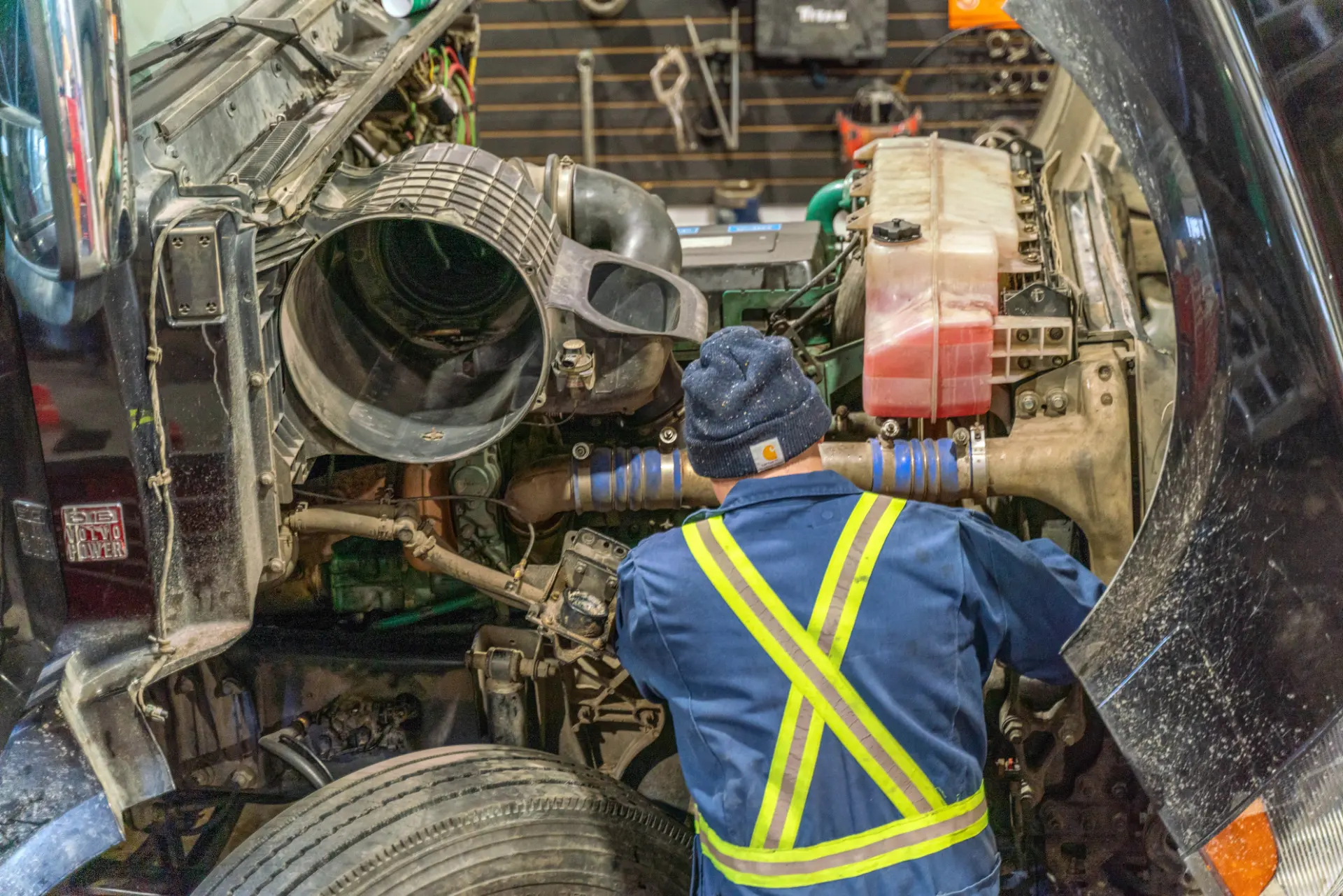Why Fleets Need More Frequent Preventive Maintenance in Winter

Winter in Edmonton and across Alberta is tough on fleet vehicles. Extreme cold, heavy snow, and corrosive road salt accelerate wear on critical systems, making preventive maintenance more important than ever. For fleet managers, adjusting service schedules in winter helps reduce downtime, avoid costly breakdowns, and keep vehicles compliant with inspection requirements.
How Edmonton Winters Impact Fleet Vehicles
Edmonton experiences long, cold winters with frequent freeze thaw cycles, snow accumulation, and road salt use. These conditions put stress on every part of a vehicle. Cold temperatures thicken fluids, reduce battery power, and increase the strain on engines. Road salt accelerates corrosion, particularly on brakes and suspension components. The result is higher risk of breakdowns if vehicles are not maintained more frequently.
Key Components That Require More Attention in Cold Weather
Certain systems need extra preventive maintenance during winter.
- Engines and oil systems: Cold starts create more wear, and oil thickens in low temperatures.
- Brakes and air systems: Moisture can freeze in air lines, reducing braking efficiency.
- Batteries and electrical systems: Battery capacity drops by nearly half in subzero conditions.
- Fluids and coolant systems: Antifreeze, coolant, and hydraulic fluids must be monitored to prevent freezing or overheating.
- Tires and suspensions: Cold reduces tire pressure, while snow and ice increase wear on suspension systems.
Reviewing your preventive maintenance program is essential to ensure these components receive the attention they need before issues arise.
Adjusting Maintenance Schedules for Seasonal Demands
In winter, preventive maintenance intervals should be shorter. Oil changes, battery checks, brake inspections, and fluid top ups all need to occur more often than in summer months. By planning service proactively, fleet operators reduce the risk of roadside breakdowns that can take vehicles out of service for days.
The Role of CVIP Inspections in Winter Readiness
The CVIP inspection is a legal requirement for commercial vehicles in Alberta, but it is also a valuable tool for winter readiness. Inspections catch issues with brakes, steering, and suspension before they become failures on the road. Scheduling inspections during winter ensures compliance and helps identify weather related wear early.
Cost Impacts of Downtime vs. Preventive Maintenance
Downtime during winter can be extremely costly. A truck that breaks down may result in missed deliveries, towing charges, and expensive emergency repairs. Investing in preventive service costs less than even a single roadside breakdown. When vehicles are maintained proactively, the need for roadside assistance decreases significantly, saving fleets money and protecting reliability.
Why Proactive Maintenance Builds Stronger Fleets
Fleet managers who adjust schedules for winter improve safety, compliance, and cost efficiency. Regular checks of critical systems prevent unexpected failures and extend vehicle life. For businesses operating in Edmonton, preventive maintenance is the most effective way to keep fleets moving through Canada’s harshest conditions.
Visit Fleetgo to learn more about our fleet maintenance services and how we can prepare your vehicles for winter. Ready to create a customized service plan? Contact us today to book your maintenance schedule.
More Articles

Why Vibration at Highway Speed Often Points to Driveline Problems

Why Uneven Brake Wear Signals Bigger System Issues

Early Signs of Differential Failure in Heavy-Duty Trucks
Contact FleetGo
Get in touch with Fleetgo today to request a quote or to schedule in-shop or mobile services in Edmonton & the surrounding area! Our mobile service extends to a 100km radius around Edmonton for emergency roadside assistance & mobile truck & fleet repairs, including Sherwood Park, Spruce Grove, Fort Saskatchewan, St. Albert, Stony Plain, along Highway 16, & more!


